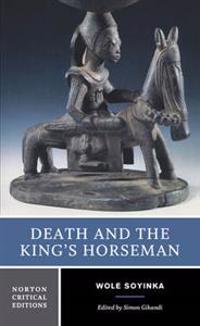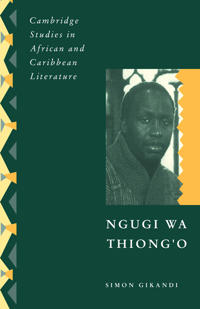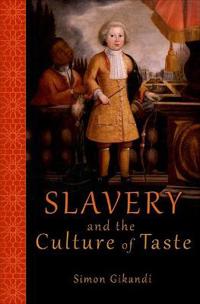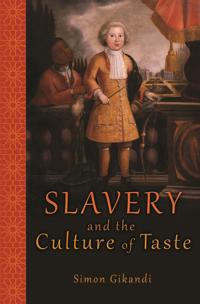Death and the King's Horseman (Pocket)
avWole Soyinka, Simon (EDT) Gikandi, Simon Gikandi
ISBN: 9780393977615 - UTGIVEN: 2002-12"Backgrounds and Sources" helps readers understand Death and the King's Horseman's traditional African contexts and the role of theater in African culture. Included are a map of Yoruba-land, discussions of Yoruban religious beliefs and cultural traditions, Soyinka on the various forms that theater h[...]
Maps of Englishness: Writing Identity in the Culture of Colonialism (Övrig)
avSimon Gikandi
ISBN: 9780231105989 - UTGIVEN: 1996-12-30Gikandi explores the politics of identity to analyze how the colonial experience inspired narrative forms that changed the nature of the English identity by surveying the British imperial tradition since the nineteenth century. He provides detailed readings of the works of Trollope, Carlyle, and oth[...]
Maps of Englishness (Häftad)
avSimon Gikandi
ISBN: 9780231105996 - UTGIVEN: 1996-12Gikandi explores the politics of identity to analyze how the colonial experience inspired narrative forms that changed the nature of the English identity by surveying the British imperial tradition since the nineteenth century. He provides detailed readings of the works of Trollope, Carlyle, and oth[...]
Columbia Guide to East African Literature in English Since 1945, The (Övrig)
avSimon Gikandi, Evan Mwangi
ISBN: 9780231125208 - UTGIVEN: 2007-03-28The Columbia Guide to East African Literature in English Since 1945 challenges the conventional belief that the English-language literary traditions of East Africa are restricted to the former British colonies of Kenya, Uganda, and Tanzania. Instead, these traditions stretch far into such neighborin[...]
Ngugi Wa Thiong'o (Pocket)
avSimon Gikandi
ISBN: 9780521119016 - UTGIVEN: 2009-09Kenyan dramatist and novelist Ngugi wa Thiong'o is a hugely influential African writer respected not only for his creative work but also for his criticism of wider cultural issues - issues such as nation and narration, power and performance, language and identity, empire and postcoloniality. Simon G[...]
Slavery and the Culture of Taste (Inbunden)
avSimon Gikandi
ISBN: 9780691140667 - UTGIVEN: 201108It would be easy to assume that, in the eighteenth century, slavery and the culture of taste - the world of politeness, manners, and aesthetics - existed as separate and unequal domains, unrelated in the spheres of social life. But to the contrary, "Slavery and the Culture of Taste" demonstrates tha[...]
Slavery and the Culture of Taste (Pocket)
avSimon Gikandi
ISBN: 9780691160979 - UTGIVEN: 2014-04It would be easy to assume that, in the eighteenth century, slavery and the culture of taste - the world of politeness, manners, and aesthetics - existed as separate and unequal domains, unrelated in the spheres of social life. But to the contrary, Slavery and the Culture of Taste demonstrates that [...]









